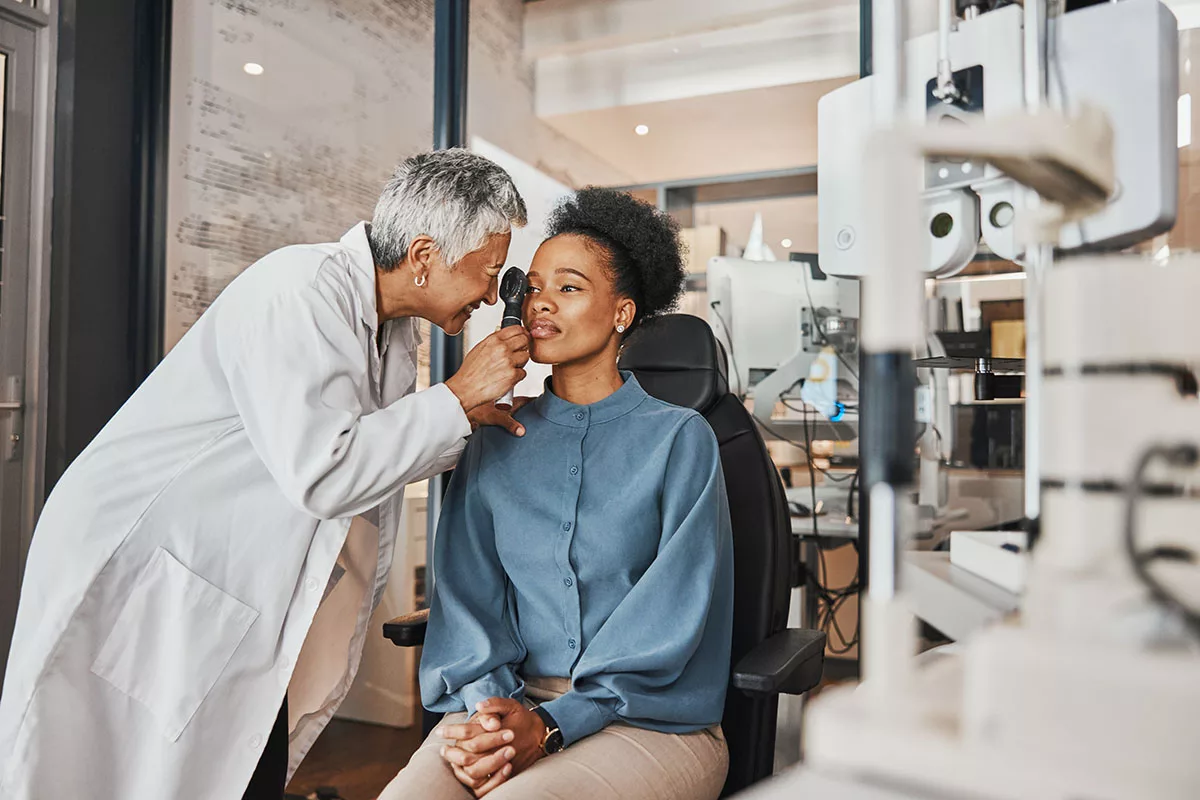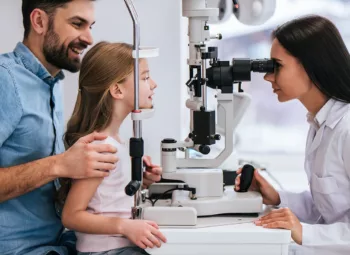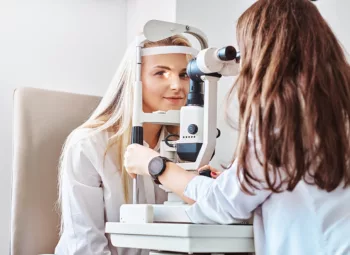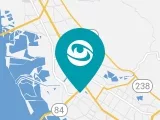
Your eyes are windows to your overall health. Catching eye problems early can make all the difference in preventing vision loss and maintaining your quality of life. To learn more about promoting healthy vision, read on for common symptoms you should tell your eye doctor about immediately.
Remember, when it comes to vision care, early detection and timely intervention are your best allies. Experiencing vision symptoms can be alarming, but it doesn’t have to be. Scheduling a comprehensive exam with a skilled ophthalmologist will ensure you receive personalized care for any of your eyesight concerns.
1. Any Sudden Changes in Your Vision
It’s common to experience gradual vision changes over time as we age and undergo lifestyle adjustments. However, sudden differences in your eyesight demand your immediate attention and a visit to your eye doctor. Sudden vision changes like pain, irritation, blurriness, blindness, or other unanticipated symptoms can be a sign of serious concerns such as:
- Detached retina
- Glaucoma
- Macular degeneration
- Eye injury
- Concussion
- Vitreous hemorrhage
- Retina infection
- And more
Always contact your eye doctor about any unexpected eye symptoms immediately or seek emergency medical care.
2. Floaters and Flashes
Floaters typically appear as dark spots, wavy lines, or web-like shapes in your vision. They’re more noticeable against plain surfaces, like a clear sky, for example. Many patients report that floaters “run-away” when they try to look at them. Meanwhile, “flashes” typically appear as flashing lights or lightning streaks.
Gradually noticing floaters and flashes as you age is normal, especially for those with nearsighted vision. However, the sudden onset of this symptom can be due to a more serious problem, like retinal detachment. The best way to rule out a serious eye condition is with a simple vision exam from your ophthalmologist.
3. Sensitivity to Light

Light sensitivity, also known as photophobia, can be a vision symptom of many potentially urgent concerns including:
- Meningitis (bacterial infection)
- Encephalitis (viral infection that leads to brain inflammation)
- Subarachnoid hemorrhage (bleeding in the space surrounding the brain)
- Corneal abrasion
- Scleritis
- Corneal ulcers
- Conjunctivitis (also known as pink eye)
- And more
If you’re experiencing photophobia, inform your eye doctor immediately so they can determine the root cause and potential treatment options.
4. Double Vision
Did you know that over 50,000 people visit the ER for double vision every year? Also known as diplopia, double vision is often a sign of underlying causes involving muscle, nerve, or brain dysfunction. If you experience any sudden vision change like double vision, it is incredibly important to seek emergency medical care right away.
Here are some potential causes of double vision:
- Cataracts
- Astigmatism
- Dry eye syndrome
- Brain aneurysm
- Stroke
- Infections like shingles or herpes zoster
- Improperly fitting glasses or contact lenses
- Iris abnormalities
- Misaligned eyes
- Cranial nerve issues
- And more
5. Colors Appear Faded
If colors begin to look less vibrant, this can be a sign of optic nerve inflammation or damage. This is known as optic neuritis and can be caused by several degenerative eye conditions including glaucoma, cataracts, and macular degeneration. Optic nerve damage directly affects how the retina sends signals to your brain, causing colors to appear dull or faded.
You should always get this symptom examined by an eye doctor to determine the root cause and best course of action.
6. Tunnel Vision
Tunnel vision, or peripheral vision loss (PVL), is when a person can only see what’s right in front of them. In these scenarios, the corners of your vision may appear blurry, white or glowing, or fade to black. Common tunnel vision causes include glaucoma, diabetes-related retinopathy, retinal detachment, migraine with aura, and other conditions that need urgent treatment.
Make sure to schedule an eye exam as soon as possible if you’re experiencing tunnel vision.
7. Dry Eyes

Dry eye is a common condition that occurs when there aren’t enough high-quality tears to comfortably lubricate your eyes. Tears are important to your health because they protect your eyes from irritants. Reduced tear production can be a typical sign of aging, or a vision symptom related to an underlying medical condition.
Insufficient tear production can lead to inflammation and damage to the cornea, the clear surface layer of your eye. It’s vital to see an eye doctor as soon as possible to get treatment for dry eye before damage occurs.
8. Blind Spots
Experiencing blind spots in your vision can be a sign of many serious eye conditions. If the blind spots occur suddenly, this could be a symptom of migraines, or even a possible seizure. If the blind spots have been gradually growing, this might be due to retinal detachment, a condition that often requires surgery. Whether you notice them suddenly or gradually, you should tell your eye doctor about blind spots in your vision immediately.
9. Dark Spots in Vision
Dark spots in your vision that resemble sprinklings of black pepper could be a symptom of a retinal tear. A retinal tear happens when the vitreous pulls on the retina, creating a “rip.” Blurry vision often accompanies retinal tears, as well as visible dark spots, sudden floaters, and dimmer sight.
Eye doctors consider a retinal tear an emergency. It can lead to retinal detachment, an incredibly serious condition that could result in permanent blindness if not addressed immediately.
10. Decreased Night Vision
Night vision is the ability to see in low-light conditions. Noticing decreased night vision can be a potential symptom of a vitamin A deficiency, glaucoma, cataracts, or retinitis pigmentosa. All of these conditions gradually become worse over time and can even cause irreversible blindness without proper intervention. Many people commonly notice changes in their night vision while driving, or in dimly lit rooms such as restaurants.
If you’re experiencing decreased night vision, it’s important to tell your eye doctor right away. This can help rule out possible underlying health conditions.
Make an Appointment with a Trusted Eye Doctor in Union City Today
Make sure to tell your doctor about any of these eye-related symptoms immediately to get treatment as soon as possible. Schedule a consultation with Dr. Tandon at NeoVision Eye Center in Union City by filling out the form below.
Schedule an Exam with an Eye Doctor at NeoVision Eye Center
If you’re experiencing any of these symptoms, contact NeoVision today to see a qualified eye doctor as soon as possible and get the eye care you deserve.
"*" indicates required fields





